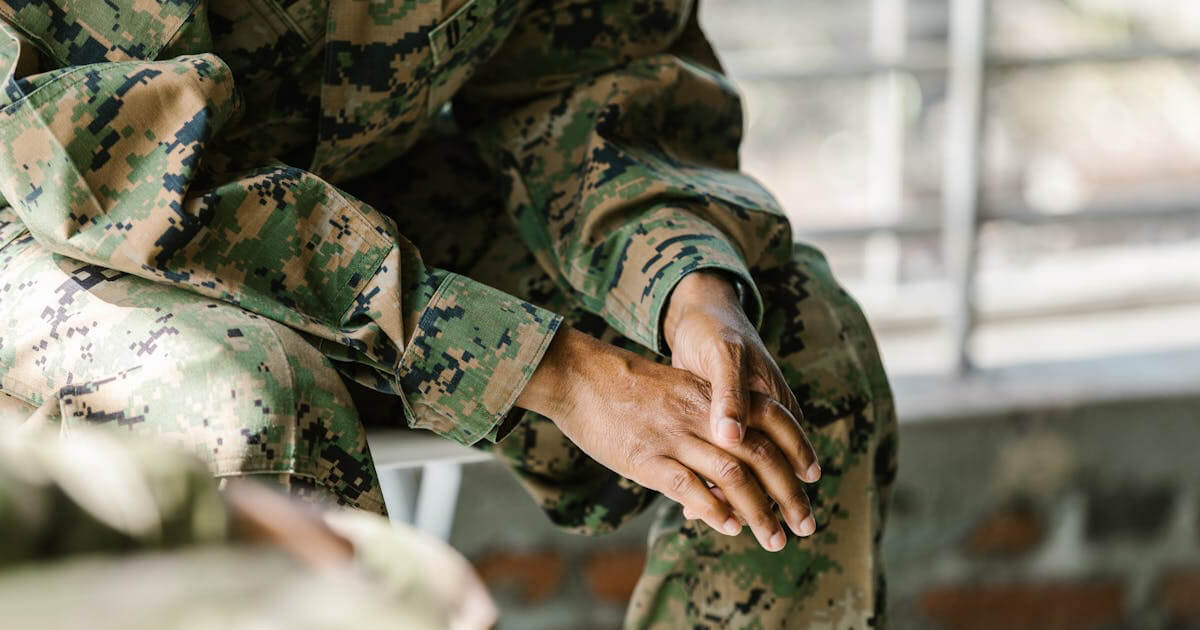The brave men and women who serve in the military face unique challenges both during active duty and after returning to civilian life. As a result of these challenges, service members and veterans can be at higher risk for substance use and mental health challenges. Fortunately, recovery centers like Pura Vida Recovery in Santa Rosa, CA provide specialized treatment services for veterans, active duty, and military members.
In order to deliver effective and compassionate treatment, it’s important for our staff members to understand why this population is more likely to develop substance use disorders. Below we explore the factors that contribute to this vulnerability, along with insights into why awareness and early intervention are crucial.
High-Stress Environments
Many active military members are regularly exposed to combat and trauma. Frequent deployments and exposure to violence can lead to chronic stress, anxiety, or post-traumatic stress disorder (PTSD). Witnessing life-threatening events or losing fellow service members can also leave lasting emotional scars.
In these stressful environments, people are more likely to turn to substances. Alcohol, prescription painkillers, and illicit substances can numb emotions, giving service members the illusion that they can escape their pain. However, over time, reliance on substances for emotional relief can escalate into dependency or addiction.
Military Culture and Social Norms
In some military environments, drinking can be perceived as part of camaraderie or a way to unwind collectively after intense missions or training. Pressure to keep up with peers may also lead to binge drinking patterns. Consider that the average age of a U.S. soldier is just 28.5 years old, so wanting to fit in is still important at this age.
Furthermore, alcohol—and even cannabis—is socially acceptable, which can blur the line between moderate use and harmful overuse. When a pattern of heavy drinking becomes normalized, service members might not recognize their own problematic behaviors until they are well into dependency.
Physical Demands and Pain Management
Military training and combat-related injuries can lead to chronic pain or physical limitations, such as traumatic brain injuries or back pain. In order to manage the discomfort, service members may be prescribed powerful pain medications, which can be highly addictive if misused or taken long-term. Additionally, overuse or misuse of prescription painkillers can transition into seeking other substances when prescriptions run out or no longer provide relief.
Mental Health Challenges Post-Service
Post-traumatic stress disorder (PTSD) is more common among veterans than civilians. At some point in their life, 7 out of 10 veterans will have PTSD. This disorder can develop after repeated exposure to combat stress and include nightmares, flashbacks, and heightened anxiety. These symptoms can make daily life difficult, prompting some veterans to self-medicate with drugs or alcohol.
Furthermore, the drastic shift from military life to civilian life can result in feelings of isolation or purposelessness. The lack of clear daily missions, structured schedules, and camaraderie can lead to depression, potentially increasing susceptibility to substance use. It’s also possible that veterans may struggle to fill their time in healthy ways, leading to the misuse of drugs or alcohol.
Barriers to Seeking Help
There is still a stigma around mental health in the military culture. The “tough it out” mindset can deter individuals from seeking therapy, counseling, or rehab until problems escalate. Plus, many service members worry that admitting to mental health concerns could harm their career or reputation.
And, even if a service member did want treatment, they could have a difficult time finding it. Depending on location and available resources, not all veterans have easy access to quality healthcare or specialized treatment. Long wait times or a lack of Veteran Affairs (VA) facilities in the area can delay essential support.
Importance of Awareness and Early Intervention
You do not have to wait for substance use or mental health problems to get worse before seeking care. Early intervention is everything, and it can save service members and their families much heartache. Watch for the early signs of a substance use disorder, such as changes in behavior, mood swings, excessive drinking, or drug use.
If you are concerned about substance use in a loved one, locate organizations and programs that specialize in helping veterans. For example, Pura Vida Recovery offers recovery services for veterans, active duty, and military families. We address the common challenges that these individuals face, and we help get them back into everyday life by offering vocational training, resume workshops, life skills classes, and parenting groups.
Veteran Treatment in Santa Rosa, CA
Military members and veterans face a distinct set of stressors—from combat-related trauma to the challenges of reintegrating into civilian life—that increase their vulnerability to substance use. Understanding these underlying factors is the first step in providing effective support.
Pura Vida Recovery offers specialized substance use and mental health treatment services for veterans and active duty members. We even hold a special certification as a “Veteran Ready Organization” from PsychArmor, and we have a USAF Veteran and double board-certified physician serving as our Medical Director. To learn more about our programs and how we help this population, contact Pura Vida Recovery at (707) 879-8432.





